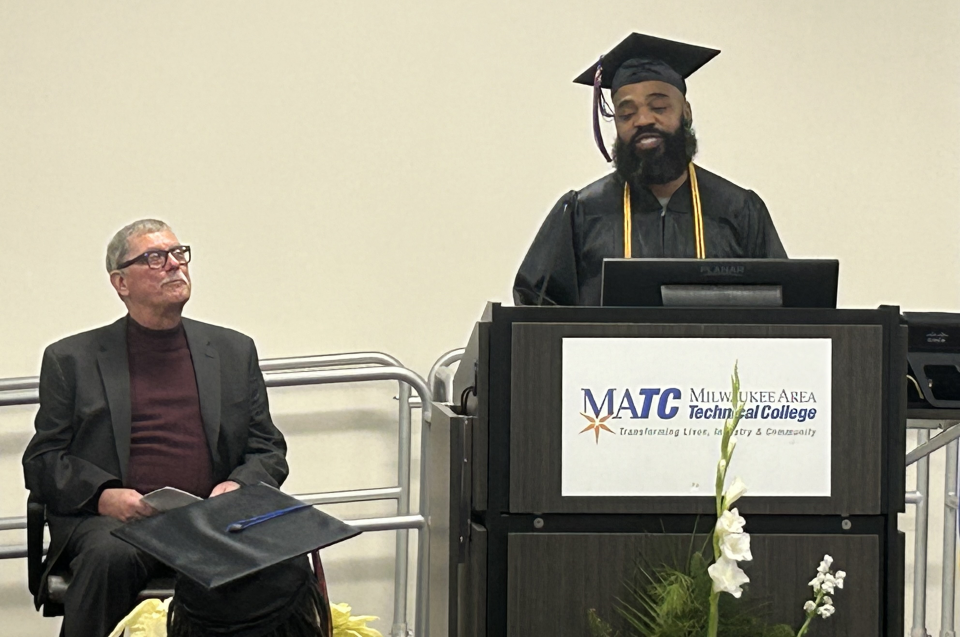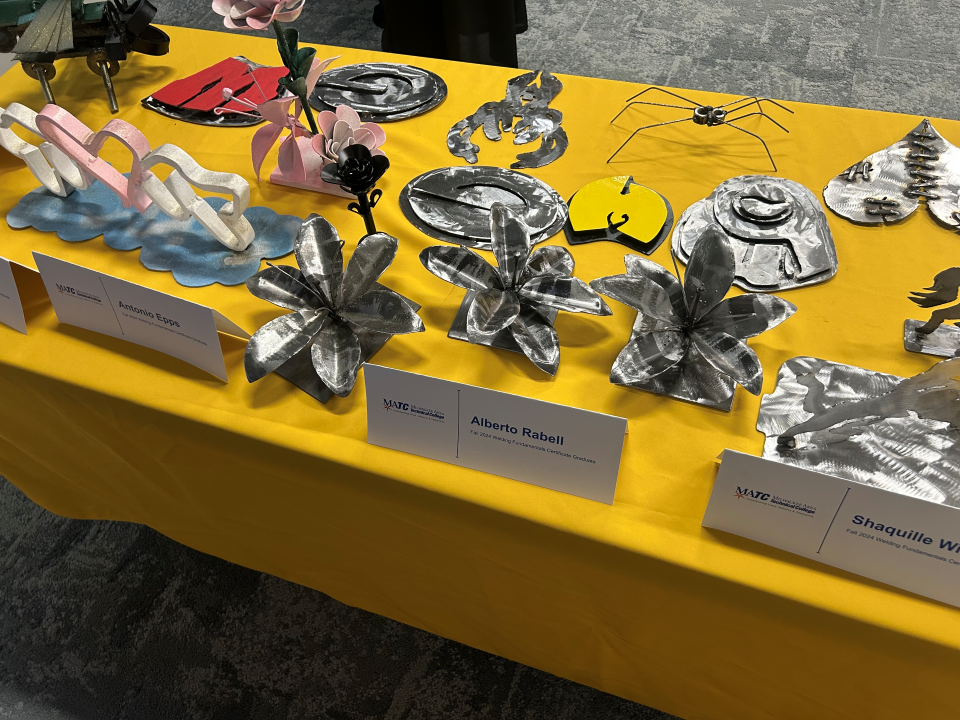
We saw the options in front of us and took this opportunity. We had had enough of being on the passenger side of life, being passive. We grabbed the steering wheel and took control of where we wanted our futures to go.
Ramon Hall needed to steer his life down a different road.
Arrests, court convictions and prison sentences put him in the care of the Wisconsin Department of Corrections. While serving his time, he attended welding courses taught by Milwaukee Area Technical College instructors.
“We saw the options in front of us and took this opportunity,” said Hall about the six other men in his class. “We had had enough of being on the passenger side of life, being passive. We grabbed the steering wheel and took control of where we wanted our futures to go.”
On Monday, December 16, 2024, the men received Welding certificates at a ceremony held at MATC’s Downtown Milwaukee Campus.
MATC’s Second Chance Pell Grant program provides federal aid to people in state and federal prisons so they can receive postsecondary education while serving their sentences. MATC was the first Wisconsin college to participate in the Second Chance program, which was created in 2015. Since the program’s inception MATC has graduated more than 200 students.
In the Welding program, the men took classes six days a week for 16 weeks to earn the 17 credits required to receive the certificate. Once released, the men could return to MATC to further their education or use the certificate to secure welding jobs that start at more than $20 an hour.
“You have made an investment in yourself, and that investment will change your lives and the lives of your loved ones,” MATC President Anthony Cruz, Ed.D., said at the ceremony. “We believe in the potential of everyone. We foster growth, refuse to judge based on circumstances and create an environment of inclusion where everyone has a chance to thrive.”
Attending class while serving time wasn’t easy, said Hall, who was the student speaker for the cohort. Some of the group had never welded before, he said. Others felt doubt, fear and anxiety. But each participant brought something unique to the table, like humor, academic prowess, discipline and calmness, that helped everyone succeed, Hall said.
“This was truly a team effort,” he said.
Paul Kemper, assistant administrator for the division of adult institutions at the Wisconsin Department of Corrections, urged the participants to remember that camaraderie and persistence
“Draw on this experience to rise above, overcome any challenges that come your way and persevere,” Kemper said.
Statistics have shown that Second Chance participants cut their chances of returning to prison almost in half, said Sadique Isahaku, Ph.D., MATC’s executive dean of academic strategy and innovation.
A 2018 RAND Corporation study showed that inmates who participated in educational programs while in prison had a 48% lower chance of returning to prison within three years of release than those who didn’t.
At Monday’s graduation, numerous objects that the participants created during their classes were displayed. The work ranged from flowers to sports logos to spiders.
“Welding is not for the weak,” said Stacy Garza, an MATC instructor who taught in the program. “Knowing the fundamentals of this trade puts you much farther ahead than others. Now you can shock potential employers with this second language that you have learned.”
Learn about MATC’s Second Chance Pell Grant program
About MATC: Wisconsin’s largest technical college and one of the most diverse two-year institutions in the Midwest, Milwaukee Area Technical College is a key driver of southeastern Wisconsin’s economy and has provided innovative education in the region since 1912. More than 30,000 students per year attend the college’s four campuses and community-based sites or learn online. MATC offers affordable and accessible education and training opportunities that empower and transform lives in the community. The college offers more than 180 academic programs — many that prepare students for jobs immediately upon completion and others that provide transfer options leading to bachelor’s degrees with more than 40 four-year colleges and universities. Overwhelmingly, MATC graduates build careers and businesses in southeastern Wisconsin. The college is accredited by the Higher Learning Commission.


